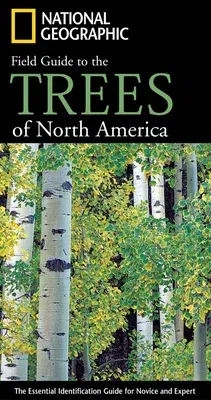Ideal for backpacks and back pockets alike, this indispensable reference
makes it easy to identify any tree commonly encountered between the
Canadian Arctic and Mexico and from the Atlantic to the Pacific--more
than 350 species in all. It's a natural for birders, hikers, and other
outdoorsy types, but even confirmed urbanites will find plenty of
information on city trees as well.
Concise yet comprehensive, the book's clear, methodical approach enables
anyone to recognize trees at a glance. Developed in consultation with
botanists from The Royal Botanic Gardens, Kew, and Cornell University's
renowned Bailey Hortorium, it separates species into two fundamental
types: conifers and broad-leaved, then organizes them into genera based
on common characteristics, presenting each in its presumed order of
evolution. Major differences between species groups are explained, with
advice on which parts of a tree to examine when a closer look is
required.
More than 1,000 annotated illustrations depict the height, shape,
foliage, buds and seed of each species, with trees bearing a strong
resemblance shown side by side to highlight their distinctive
differences. The accompanying text and system of symbols provide the
important details on features and habitat essential to quick, reliable
identifications, while graphical keys indicate genus and species,
listing both scientific and common names. The guide also includes a map
charting tree hardiness and distribution based on widely recognized
climactic zones; general information about individual species traits and
history, a glossary; and more.

